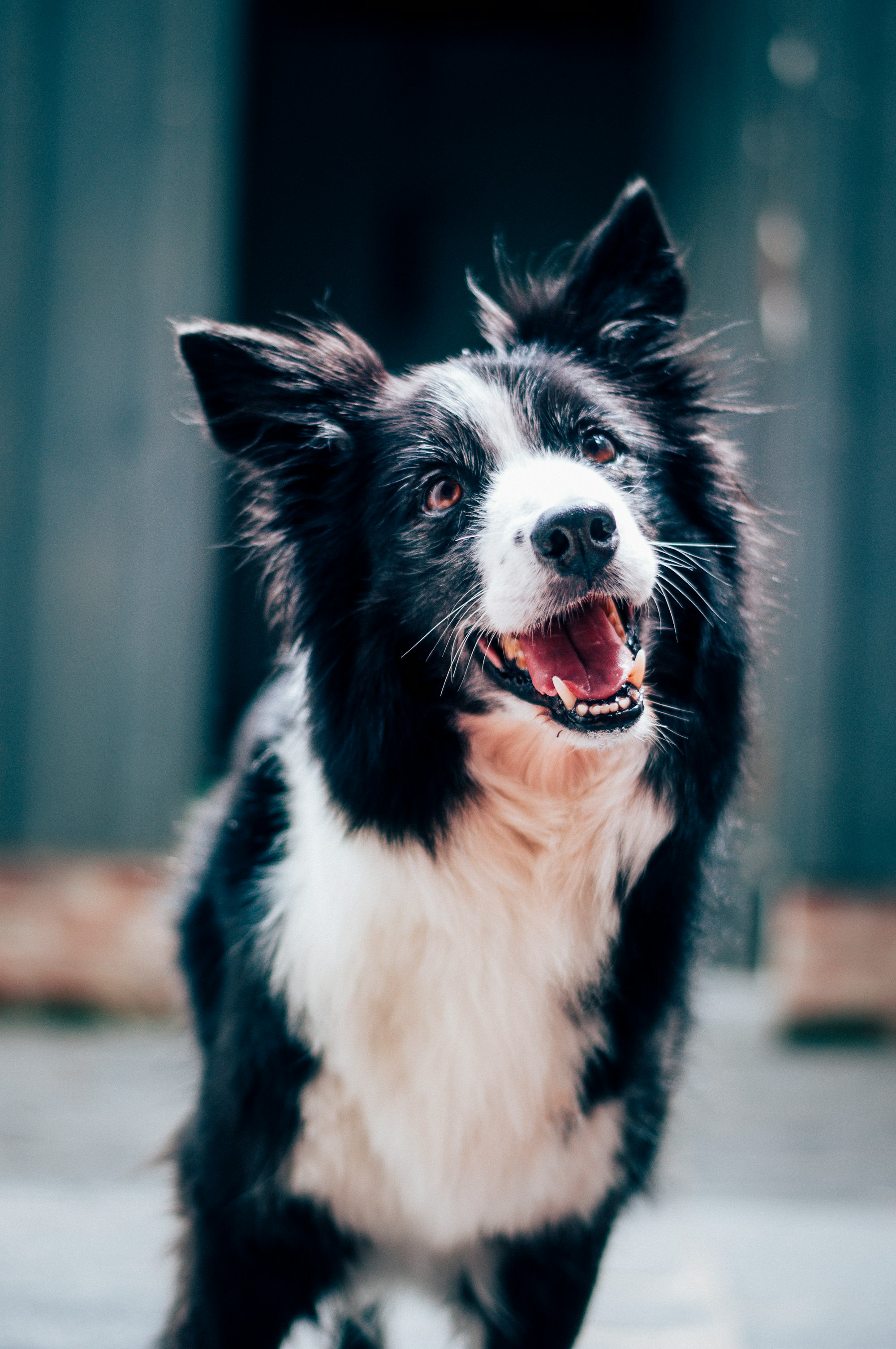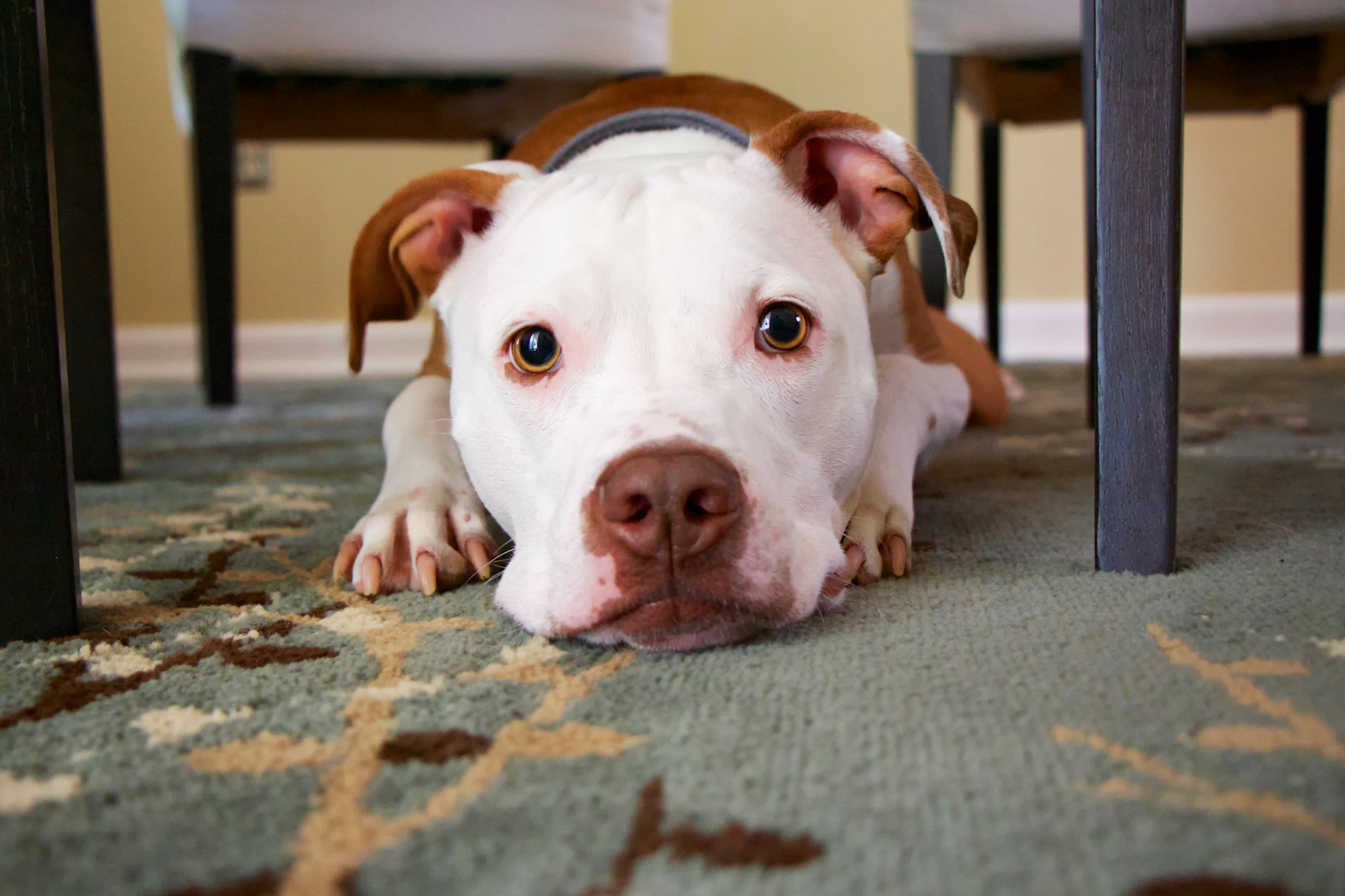There's nothing like a wet, slobbery kiss from your favorite four-legged friend. However, if you're finding more doggy drool than usual on your furniture, clothes, or even your face, it's time to pause and investigate. Why? Because while some dogs are natural 'droolers', others aren't, and excessive salivation can be a sign of numerous health problems.
It's all about knowing your happy dog, observing changes, and acting promptly. Like the sudden onset of seasonal shedding or changes in their eagerness for a daily walk, increased drooling needs attention. In this article, we dive into the reasons behind excessive dog drooling and how you can help your furry friend.
Why Do Some Breeds Drool More?
Just as some dogs are bigger, some dogs are 'droolier'. Breeds like the Saint Bernard, Newfoundland, and the Boxer are known for their excessive drooling. If your dog belongs to a drool-prone breed, there's probably nothing to worry about. But what if your dog isn't from a typically drool-heavy breed, and yet you're finding puddles of saliva? That's where you need to be alert.
Dental Issues and Drooling
Often, the cause behind the drool is right inside your dog's mouth. Dental problems such as periodontal disease, tooth decay, or oral tumors can lead to excessive drooling in dogs. Regular check-ups with your vet can help catch these issues before they become severe. So, keep an eye out for any changes in your dog's chewing habits, appetite, or mouth odor.
Toxic Substances and Their Effects
Another common cause of excessive drooling is the ingestion of toxic substances. Dogs are curious creatures, and they often explore their surroundings using their mouths. This can lead to them accidentally consuming toxic substances. Plants, household chemicals, and even certain human foods can cause an adverse reaction. If you notice sudden, unexplained drooling coupled with other symptoms like vomiting or lethargy, get in touch with your vet immediately.
A Hot Dog is Not Always a Happy Dog
A fun day out under the sun may seem like the perfect way to spend a day with your dog, but too much heat can lead to heat stroke. Dogs cool down by panting, and when the panting isn't enough, they start drooling excessively. Along with heavy panting and drooling, look for signs of fatigue or confusion, and ensure they have access to fresh, cool water at all times.
Stress and Anxiety: Emotional Causes of Drooling
Excessive drooling is not always due to physical causes; sometimes, it's emotional. Dogs, much like humans, respond to stress and anxiety. Changes in routine or a significant event such as moving homes or introducing a new family member can lead to increased drooling. Comforting your anxious dog and providing them a safe space can go a long way in reducing their stress and, by extension, their drooling.
The Dangers of Chewing Everything in Sight
For a dog, the world is a chew toy. But when your pup gets a hold of a real toy, bone, or a bully stick, there's a risk of foreign objects getting stuck in their mouth or throat, causing excessive drooling. A quick check of your dog's mouth can help identify any potential blockages. If you suspect something lodged in their mouth, it's time for a visit to the vet.
Fleas and Drooling: An Itchy Problem
Yes, even the tiny fleas can cause your dog to drool. Some dogs are allergic to flea saliva, leading to a host of problems including excessive drooling. Regularly scheduled flea treatments can prevent this issue and keep your dog comfortable.
Parting Words: Keep An Eye Out But Don't Panic
Excessive drooling can be a sign of several health issues, but it isn't always a cause for alarm. The key is to know your dog well, observe changes, and act quickly when necessary. Regular vet check-ups, good hygiene practices, a balanced diet stored in a clean dog food container, and daily exercise can keep most health issues at bay.
And for those summer beach trips, remember to equip your pooch with a dog life jacket. For walks, consider a dog backpack to help carry essentials and keep them busy. Understanding dog communication can also play a significant role in identifying any problems early. Keep plenty of love and affection on tap, and do not hesitate to provide therapy when required. Your furry friend's wellbeing depends on you. Stay alert and stay informed.

Unusual Swelling and Drooling
Swelling around the mouth or neck can also cause excessive drooling. This could be due to an infection, an allergic reaction, or even a snake bite. If you notice any unusual swelling, contact your vet immediately.
Motion Sickness – Not a Joy Ride
Just like some people, many dogs get car sick. One of the symptoms of motion sickness in dogs is excessive drooling. If you notice your dog drooling a lot on car rides, it may be experiencing motion sickness. Talk to your vet about possible solutions, which could include medication or specific training methods to help your dog cope better with car rides.
Gastrointestinal Issues – More Than Just a Sensitive Stomach
Your dog's excessive drooling could also be a sign of gastrointestinal problems. Gastritis, acid reflux, and ulcers can cause your dog to drool more than usual. If your dog is showing other signs of gastrointestinal distress, such as vomiting, diarrhea, or loss of appetite, it's essential to contact your vet right away.
Pain – Silent But Salivating
Dogs are incredibly stoic creatures. They can be in pain and still wag their tail at you. But one sign that your dog might be hurting is excessive drooling. Whether it's due to an injury, an internal issue, or even just a thorn in their paw, drooling can be an indication of discomfort. If you notice an increase in drooling along with other signs of pain, such as limping or loss of appetite, get in touch with your vet immediately.
Nausea – Upset Stomach, Increased Drooling
Like humans, dogs can experience nausea, one symptom of which is excessive drooling. A sudden change in diet, a gastrointestinal infection, or even certain medications can cause your dog to feel nauseous. If you notice your dog drooling more than usual along with other signs of nausea, such as loss of appetite or vomiting, a vet visit is in order.
Infections and Diseases – A Deeper Problem
Certain infections and diseases, like rabies or kidney disease, can cause excessive drooling. These conditions are serious and require immediate veterinary attention. It's crucial to ensure your dog is up-to-date on all vaccinations, and if you notice any drastic changes in their behavior or physical health, do not delay seeking professional help.
Monitor Your Dog's Health with Fi Dog Collars
In this era of advanced technology, we have access to innovative products that make pet parenting more manageable and effective. One such revolutionary product is the Fi Dog Collar. This smart collar doesn't just let you keep track of your dog's location but also helps monitor their health and behavior patterns.

Fi Collars – Helping Identify Health Changes
Monitoring changes in drooling can be an indicator of various health conditions. But what if you could be one step ahead? With the Fi dog collar, you can do exactly that. The collar tracks your dog's daily activity levels, giving you insights that could be vital in identifying any unusual patterns or potential health issues.
For instance, a decrease in activity could suggest your dog isn't feeling well. Conversely, restlessness could indicate stress or anxiety. By tracking your dog's daily activity levels, you can keep an eye on their health and spot any potential issues before they become major problems.
Keeping Track of Temperature and Safety
Remember how we discussed heatstroke as a potential cause of excessive drooling? Well, the Fi collar can help there too. The collar can track your dog's surrounding temperature, helping you ensure they're not overheating on those long summer days.
Moreover, the collar's location tracking feature is perfect for those adventurous outings. Whether your dog is exploring the park, hiking with their dog backpack, or swimming with their dog life jacket, the Fi collar can provide peace of mind that your dog is safe and comfortable.
Stress Signals and Fi Collars
Dogs, like humans, can experience stress and anxiety due to various reasons. This emotional stress can sometimes lead to physical symptoms, like excessive drooling. While a Fi collar can't directly track your dog's stress levels, the insights provided by the collar—like changes in activity levels or sleep patterns—can help you identify potential stress triggers. This allows you to address the issue and ensure your happy dog stays that way.
Conclusion:
To conclude, drooling can be a regular aspect of your dog's life, especially if they belong to a breed known for excessive salivation. However, sudden or increased drooling can often indicate underlying health issues such as dental problems, toxic ingestion, heatstroke, emotional stress, pain, nausea, and even serious diseases. It's crucial as a pet parent to monitor changes in your dog's behavior and physical health closely, and excessive drooling is one such change that demands attention.
Tools like the Fi dog collar can be instrumental in monitoring your pet's health by tracking activity levels and providing insights into their overall well-being. While no substitute for regular veterinary care, a Fi collar can provide an additional layer of support and reassurance for pet parents.
In the end, the aim is to ensure the health and happiness of your four-legged friend. From scheduling regular vet check-ups and maintaining a balanced diet, to ensuring ample exercise and using tools like dog backpacks and dog life jackets for outdoor safety, every little action you take contributes to a happy dog. Let's continue to understand our furry friends better, look out for changes, and provide them with the care they deserve.